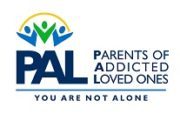Control. It’s one of the more stubborn facets of our human psychology and thought processes. So often we slip into believing the idea that somehow, someway, by some stretch of the imagination there IS A WAY we can ultimately direct the behavior of others. While we can certainly be encouraging in our efforts to help, and that in itself can be influential; any type of direct manipulation to sway or change someone’s course of action is typically futile. How many times do we have to fall down in our relationships with others before we can fully internalize the fact that people, their actions, behaviors, decisions – their very lives – are beyond our control?
Probably several. As I’ve said here several times before, learning things the hard way through tried and true experience is how most of us get the lesson. And, if you are here today reading this my guess would be that it’s probably because you’ve spent some sleepless lights losing your hair over what kind of insane decision someone you love is going to make next. And hey – that’s ok. I get it. I’ve spent a great deal of my time in recovery trying desperately to unlearn a lot of co-dependent behaviors. So much easier said than done. But the fact remains that unless we’re working on ourselves, unless we’re taking steps in the direction of healing in our own lives, we’re going to continue to feel the sting of complete powerlessness in situations like these and let ourselves get burnt.
Powerlessness though, in and of itself, doesn’t always have to carry a negative connotation. While many would believe that self-reliance and control will always be the way of strength; it can be a boon to our ego and self-esteem when we eventually realize that we’re not always going to succeed. Especially in situations with addicts and alcoholics. I’ve spent my fair share of time trying to change people’s minds who don’t want to get help. It’s essentially a part of my job. And what I’ve learned over the years is that the frustration and anguish I’ve experienced when people don’t act the way I wish they would; when they don’t listen despite it being in their best interest, is simply pointless. There is no worth in wringing yourself into a knot every time someone doesn’t make the right choice, despite the begging, pleading, or cajoling you or their family may have attempted. In what world would it be a sane idea to completely decimate your own mental and physical health over something you cannot control? Here’s where that powerlessness and surrender enter the equation.
Through practice, guidance, patience and experience, we must learn that accepting our state of powerlessness and surrendering our need for control over the person is ultimately what will be the most helpful and healthy outcome for everyone involved. In letting go we find strength. Strength to challenge our previous beliefs and internalize and accept new ways of thinking. In letting go we demonstrate our respect for others to find intrinsic motivation – which is infinitely valuable to someone who’s struggling.
I understand that it’s not always going to be so simple. I understand what it feels like to desperately love someone so much that it physically makes you ill to see them suffer. To see them fail. To see them potentially not make it out to the other side. I get that; I feel it in my innermost being. But what I refuse to accept today in my own life is that I will willingly live that way and give into that darkness. It’s not a requirement. Our usefulness to others in future situations is essentially zeroed out when we allow ourselves to suffer this way. How can we be ready, able, and willing to be God’s hands and feet in this world when the time calls for it?
In embracing powerlessness, we are able to eventually come to a place of acceptance. Of people, places, and things that used to grind our lives to a screeching halt. Mindfulness. Therapy. Meditation. The wisdom from peers and professionals who’ve come before you. Healthy eating, exercise; spiritual literature and practices. All of these tools can enable us, and empower us to live rightly. To let go of the outcomes. To exist in the moment and relish it. To be living examples of God’s almighty grace and love for people in dire need of someone to look to. Get involved, and invested, in your own personal journey; leave the rest up to God. Encourage your loved ones from a distance. Pray for acceptance, peace, and understanding. Miracle’s exist and are visible to the naked eye as long as we are of the mind to see. Suffering is one choice among many – my prayer today is that we find the wisdom and strength to make the right one moving forward.
God Bless
Sean – In Recovery
You can read, comment and ask questions for Sean to address in his blog on the PAL website, home page – www.Palgroup.org


Great article – great perspective . Was just wrestling with reconciling the balance of continuing to hold hope for addicted loved one, with distance and empathy . Keeping connection , without losing myself in grief over their suffering . Knowing when and what to say always haunting my thoughts. Such a challenge to experience those simultaneously
That indeed is difficult, but keep the faith and I am with you on holding out hope!
sean, Great blog – Since you work with addicts I want to know if
you are available as I have an adult son who needs someone to
talk to that could help in his recovery.
Tom – thanks for the great input. You can reach Sean at sean.humphrey@uhsinc.com – let us know if we can help in any other way!